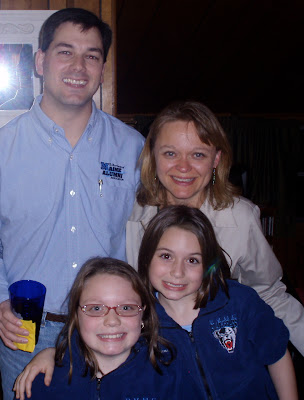This post is for a couple reasons:
First and foremost: Today, January 7th is the celebration of Christmas, known as Ganna in Ethiopia. Melkem Genna, Merry Christmas Ethiopia.
Just before the holiday, I was listening to our local radio station 88.5, and for the first time I heard a song that can only be titled "Last Christmas without You". It was a lovely song and, as you can imagine, I related and started singing along thinking this would be my last Christmas without my child. Immediately after singing one verse, I was sad. This may (or may not) be my last Christmas without my Child, but it is definitely the last Christmas my child will have with his/her first family. I began to wonder, whether or not, his family knows this is this last Christmas. Are they fighting to hold on? Is someone sick and fighting to keep the family alive, or have the means for feeding themselves all dried up? As I do not know the answers to any of these questions, they are right now, living them. Their last Christmas as a family. I was saddened to think that next Christmas they will be wondering where their beloved child is and singing about the last Christmas they had together.
Secondly: As yesterday's post said: I need to shake things up. Get rid of the all the ... INTENSITY. Today, I'm giving up internet access for a while. I do not know how long it will be.. I'm determined that when I'm no longer "jonesing" to check the forum (50 times a day... no exageration) to see who had referrals or who made it through court ... only when the "jonesing" has passed am I allowed back in.
This is especially hard today. Referrals tend to come in big "batches" and yesterday there were 5 referrals & one travel date to update on my list. Yes everyone. There is a list. There is a perfectly capable "list keeper' named Morgen who keeps the "unofficial" official list on the forum, but is that good enough for me?... no of course not. I'm spreadsheet obsessed, so I've created my own. Some how I found time for that and not to go to the gym...? Somehow I've found time for lots of obsessing online and not incorporation lots of important things. So- unless forced, I'll only be checking email.. NOT my yahoo address! from now until the stars align and I get back. This means no FB either. Wish me luck and forward motion or at least motion in 2009!!
The Ethiopian Christmas, known locally as Ganna after a hockey-like game the shepherds played when Jesus was born, usually falls on the old Julian calendar date of 7 January. The celebration has a gently festive air, especially on Christmas Eve in Addis, where people gather to eat, drink and dance.
Christmas is generally not that important in Ethiopia. This is partly because Orthodox Christianity is more centred around Mary than Christ, but most importantly because death is considered more significant than birth, hence Easter is a much larger religious occasion than Christmas. Only very dedicated Christians fast before Christmas, whereas almost all fast before Easter.
Most Ethiopians who live outside the modern capital city, Addis Ababa, live in round mud-plastered houses with cone-shaped roofs of thatched straw. In areas where stone is plentiful, the houses may be rectangular stone houses. The churches in Ethiopia echo the shape of the houses. In many parts of the country there are ancient churches carved out of solid volcanic rock. Modern churches are built in three concentric circles.
In a modern church, the choir assembles in the outer circle. Each person entering the church is given a candle. The congregation walks around the church three times in a solemn procession, holding the flickering candles. Then they gather in the second circle to stand throughout the long mass, with the men and boys separated from the women and girls. The center circle is the holiest space in the church, where the priest serves Holy Communion.
Around the time of Ganna, the men and boys play a game that is also called ganna. It is somewhat like hockey, played with a curved stick and a round wooden ball.
The foods enjoyed during the Christmas season include wat, a thick, spicy stew of meat, vegetables, and sometimes eggs as well. The wat is served from a beautifully decorated watertight basket onto a "plate" of injera, which is flat sourdough bread. Pieces of injera are used as an edible spoon to scoop up the wat.
Twelve days after Ganna, on January 19, Ethiopians begin the three-day celebration called Timkat, which commemorates the baptism of Christ. The children walk to church services in a procession. They wear the crowns and robes of the church youth groups they belong to. The grown-ups wear the shamma. The priests will now wear their red and white robes and carry embroidered fringed umbrellas.
The music of Ethiopian instruments makes the Timkat procession a very festive event. The sistrum is a percussion instrument with tinkling metal disks. A long, T-shaped prayer stick called a makamiya taps out the walking beat and also serves as a support for the priest during the long church service that follows. Church officials called dabtaras study hard to learn the musical chants, melekets, for the ceremony.
Ethiopian men play another sport called yeferas guks. They ride on horseback and throw ceremonial lances at each other.
Ganna and Timkat are not occasions for giving gifts in Ethiopia. If a child receives any gift at all, it is usually a small gift of clothing. Religious observances, feasting, and games are the focus of the season
The above info on Genna is from: istc.org and howstuffworks.com










